By
A skilled farmer, straight A student, free-range chicken raiser, dedicated father and heir to medicinal plants wisdom, Eder Baneo is multifaceted. Not only that, but he seems to have a superhuman ability to multiply the hours in a day. Regularly, he works from 6am he works in the nursery and agroforestry farms. At 11am he drives his motorcycle to the nearby town and boards a boat to Iquitos, where he is pursuing a career in Agropecuary. His trips to the city usually include getting supplies, picking up forgotten objects, delivering seedlings and a myriad of other errands that might arise. He rarely gets home before 8pm.
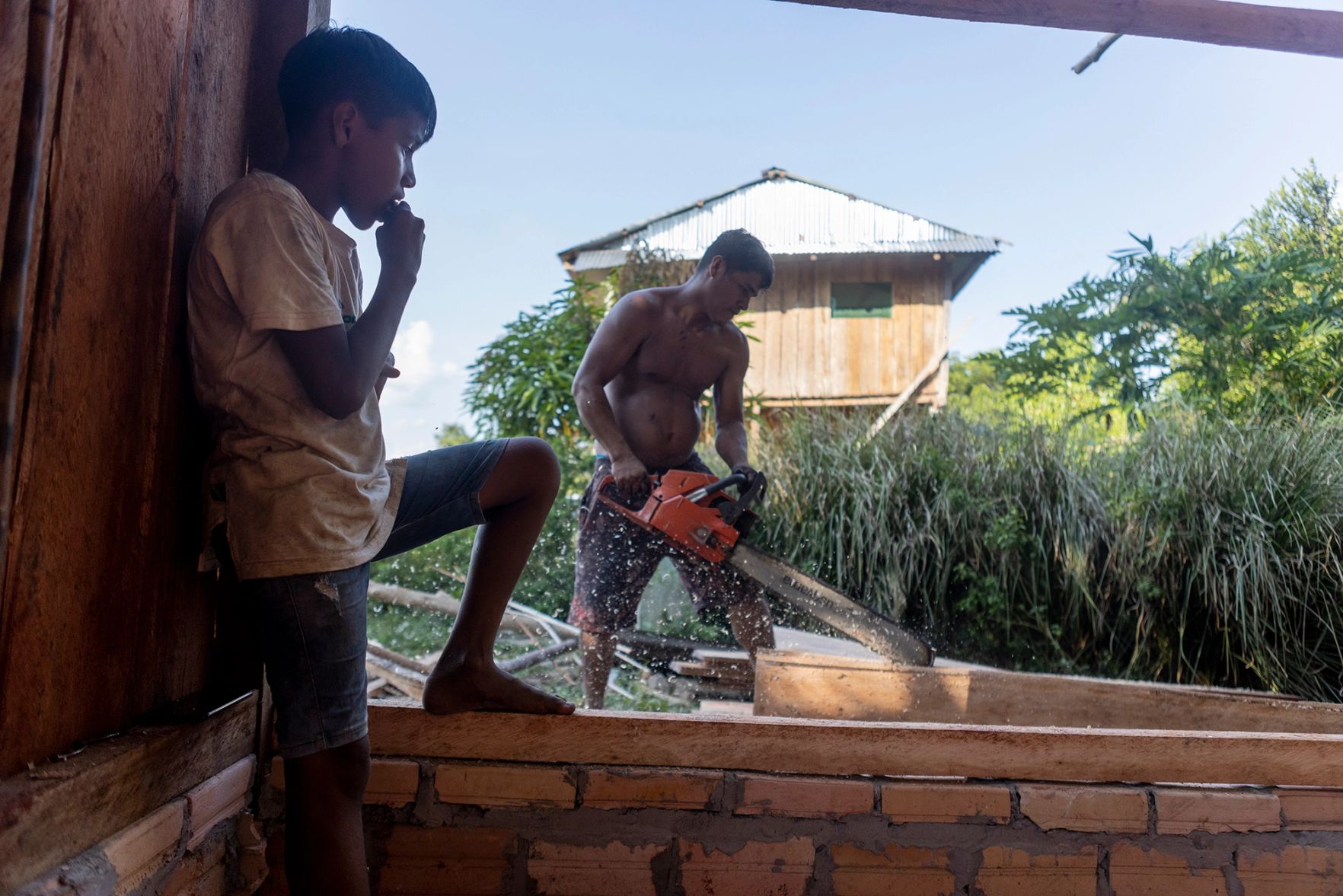
© Photo credit: Macarena Tabja/Chaikuni Institute
Eder has been part of the Chaikuni Institute local field staff since the beginning of 2019, making him the second oldest member. Born thirty-four years ago in the city of Iquitos, he spent almost every weekend of his childhood and teen years going to the community of Tres Unidos, where his father lived. There, he helped him work the fields using the traditional slash and burn practice, common in the Amazon rainforest. Eder recalls burning down a number of trees to clear the fields “only for one harvest”, a tint of sadness in his voice.
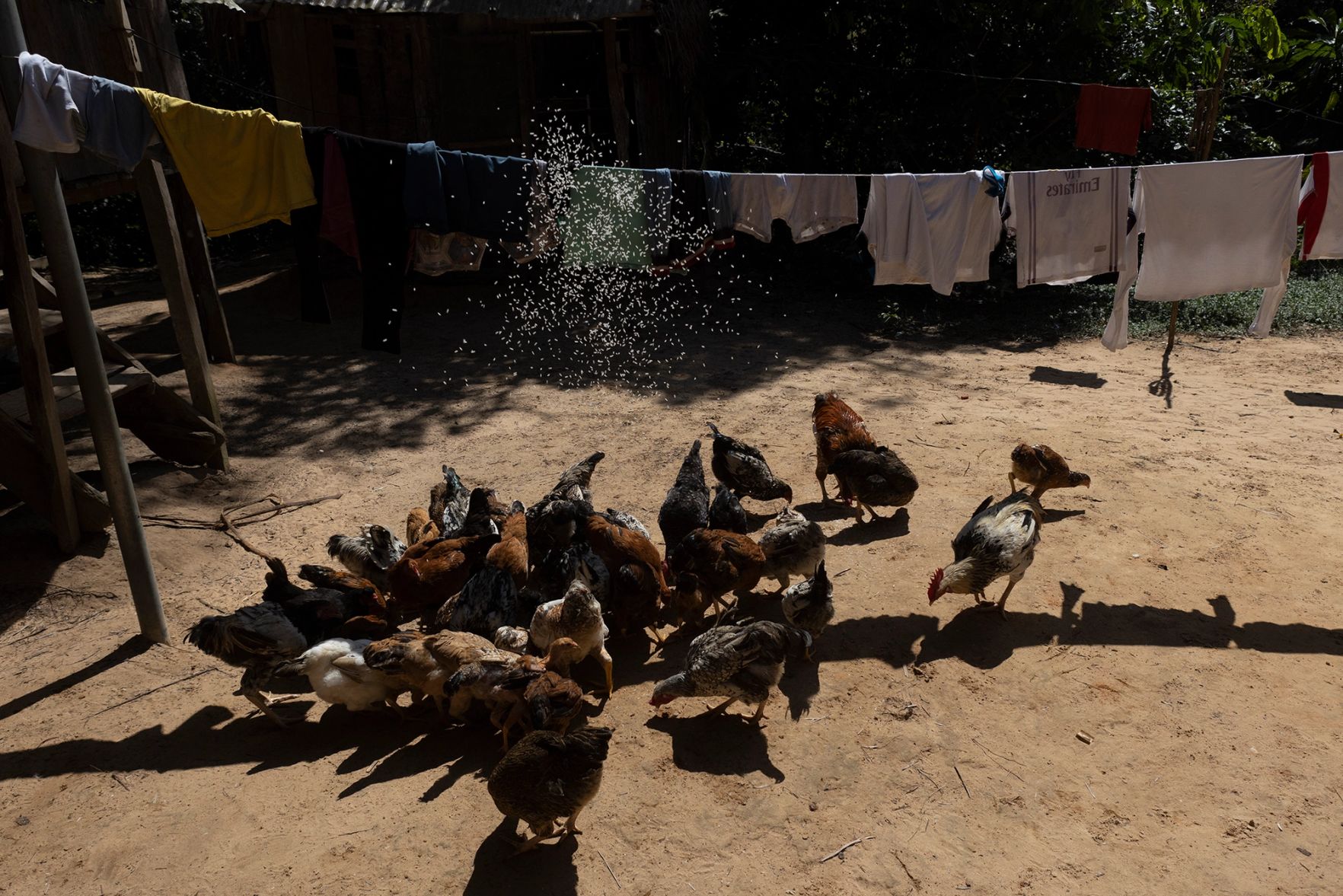
© Photo credit: Macarena Tabja/Chaikuni Institute
Eventually, both his parents got sick and moved to the city. Eder stayed in Tres Unidos to continue working his father’s lands. He started to receive constant visits and trainings from Silvia del Aguila, our Permaculture and Community Outreach Coordinator, who not only blew his mind by introducing him to permaculture and agroforestry practices but was also the one who brought Eder to Chaikuni. A turning point for him, “I began to understand that plants are very important, trees are important for us humans, they give us water, shade, food. Agroforestry changed my life.”
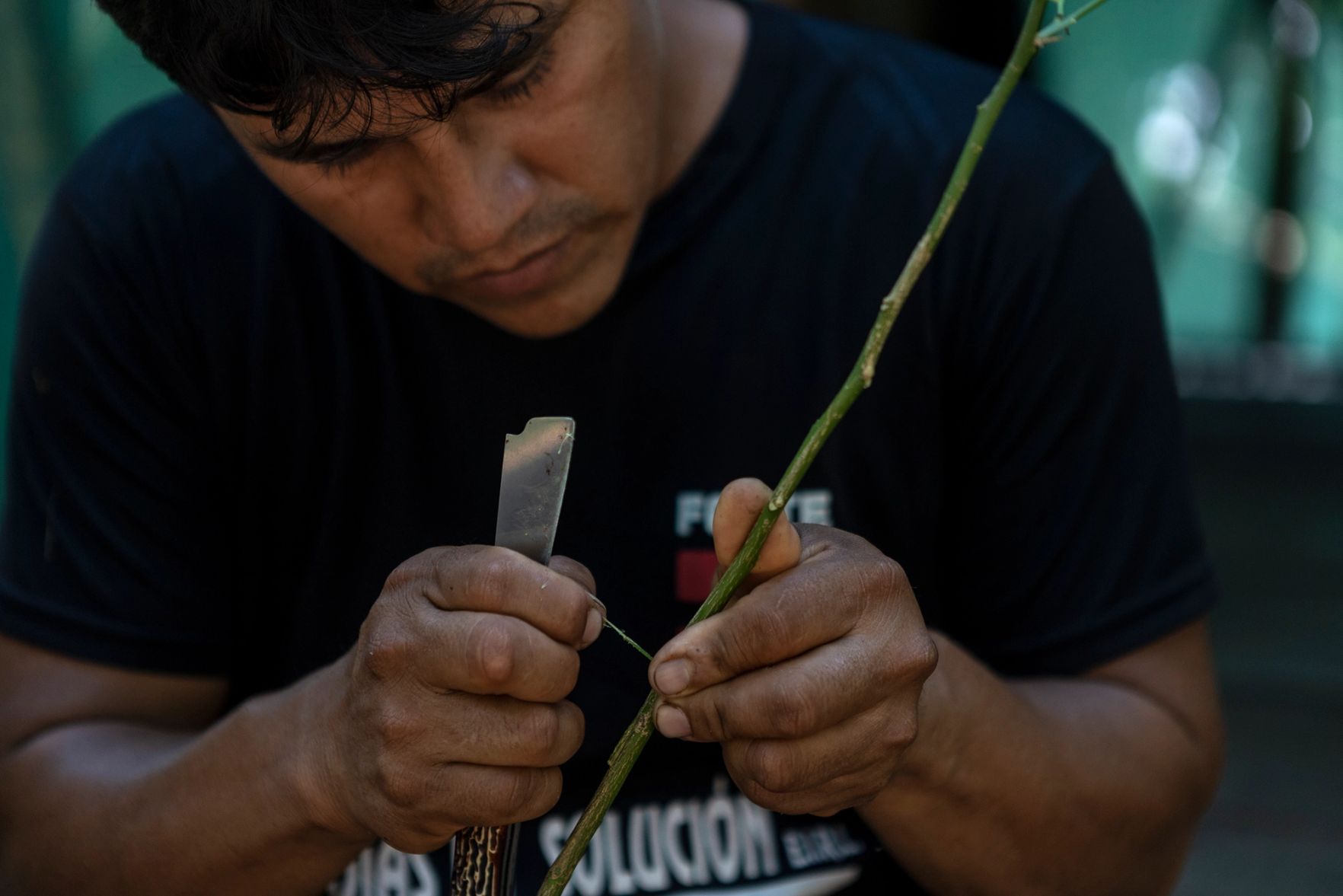
© Photo credit: Macarena Tabja/Chaikuni Institute
Relentless as he is, after his shift in Chaikuni, Eder would go back to his fields and apply all the knowledge he was getting from work. That, in addition to what he currently learns from his classes, has resulted in reforested fields with timber trees such as rosewood, copaiba, moena and caoba. Aiming for a self-sufficient life, ‘” because you cannot live all your life buying things”, food is also a big part of his sowings. Eder constantly harvests mangos, pijuayos, copoazus, umarís (all Amazonian produce), cucumbers, cilantro, hot and sweet peppers and has a chicken farm with about 100 healthy, free chickens which provide eggs for him and his family. A great contrast to the cassava monoculture he used to have before agroforestry became a part of his life.
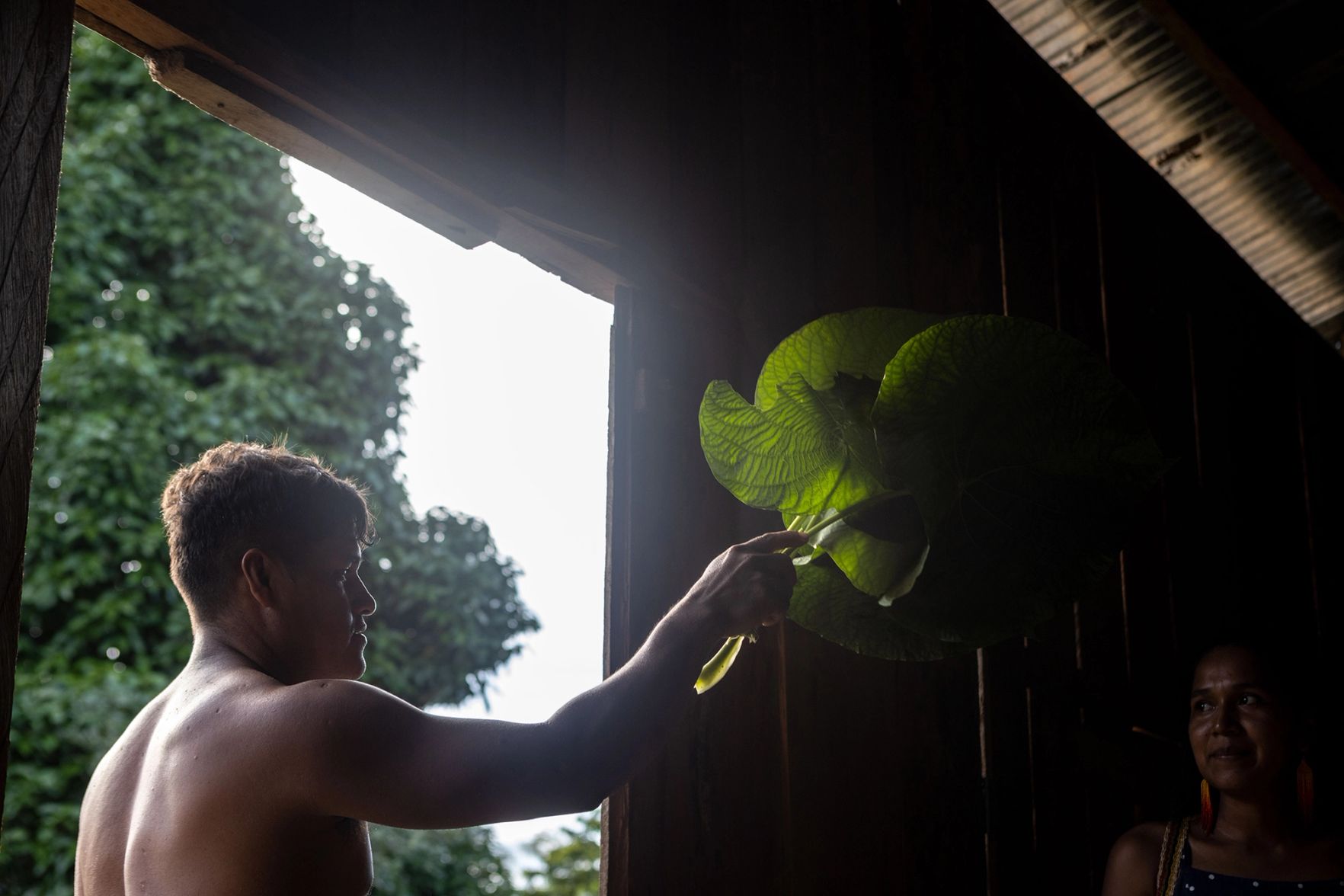
© Photo credit: Macarena Tabja/Chaikuni Institute
Indigenous knowledge applied to medicinal plants has been a part of Eder’s life since he was a child. As is common in the Amazon, he was taught by older generations to use plants for treating some diseases and wounds. From his grandfather he learned how to use different types of leaves, barks and resins to cure various conditions, such as colds, wounds, stomach pains, inflammations and, most recently, treat Covid-19 symptoms. But the plant world is pure spirit, and Eder is also talented in that respect. He knows that smoking a mapacho (an Amazonian tobacco cigarette used in ayahuasca ceremonies) will protect him from bad spirits and balance his masculine and feminine aspects. Hanging achiote leaves from the ceiling will clean the space from evil energies. Emotional issues may be healed through ceremonies with ayahuasca, perhaps the most important master plant in the Amazon rainforest. “Mostly people only use chemicals, they don't give importance to medicinal plants. I think that sometimes the body might need a little bit of chemical, but some pills are also made from plants, right?” Right.
Wanting the best possible future for his wife and two sons, Eder is passing on all the knowledge and skills he now has. His wife Alcira is his right hand and Eder trusts her blindly. “I give her the theory and she puts it to practice.” His kids are also versed in using a machete, an ax, sowing and harvesting. They know their way through the Amazon and can thrive in it.
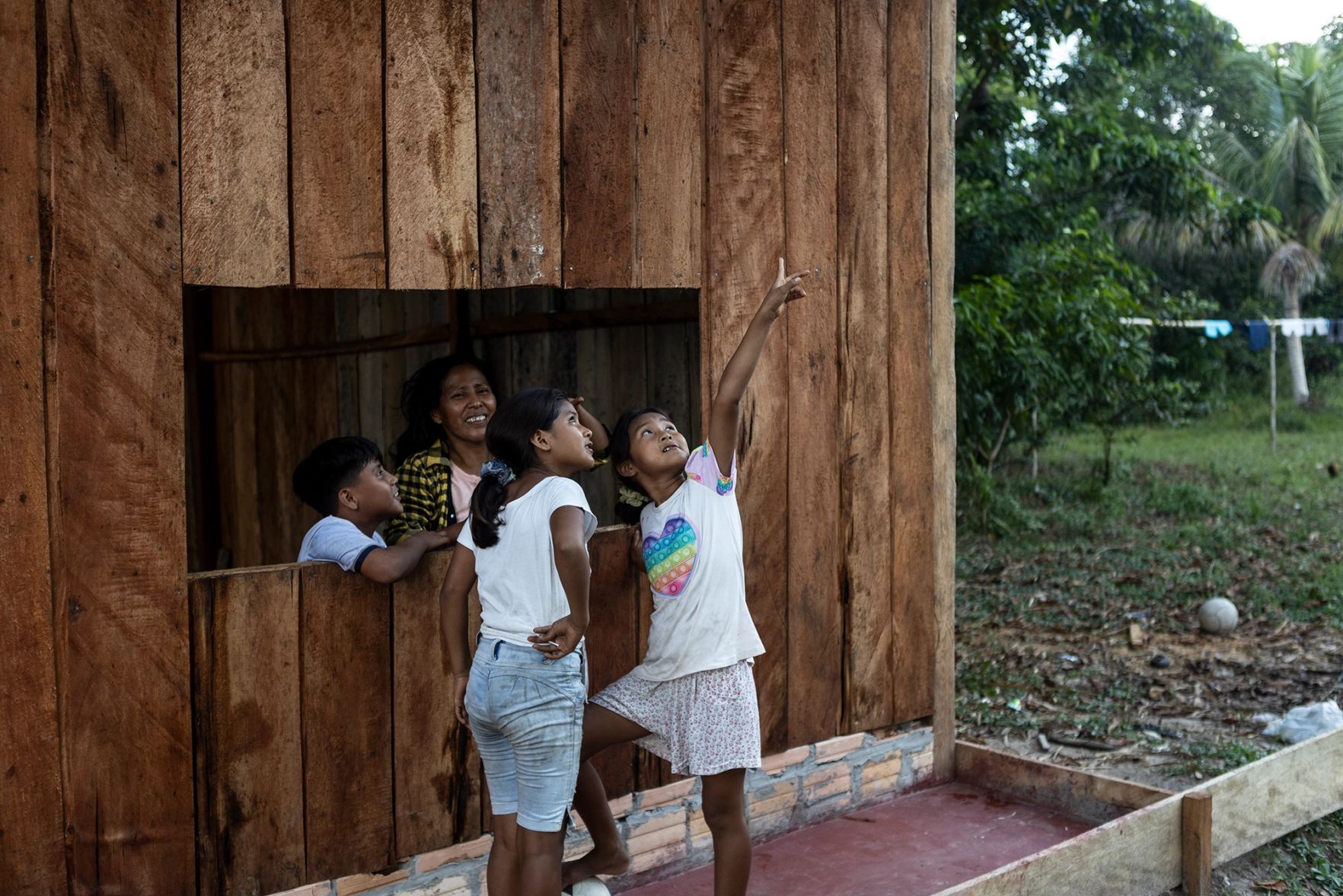
© Photo credit: Macarena Tabja/Chaikuni Institute
Closing his eyes, Eder remembers how the rainforest used to be when he was a kid. “It was all green. All the forest was untouched.” He wishes it would still be the same but reality shakes him from this dream and Eder knows there is a lot to do to bring back some of the good, old days. Convinced that sharing with other communities his knowledge on agroforestry, reforestation and how to give an added value to the available resources without pressuring the forest, is a path towards this yearning. “We are alive because of nature. We breathe, we eat. If it weren’t for nature, what would be of our lives?” Intrinsically important question for current times. Fortunately, people like Eder have the answer.
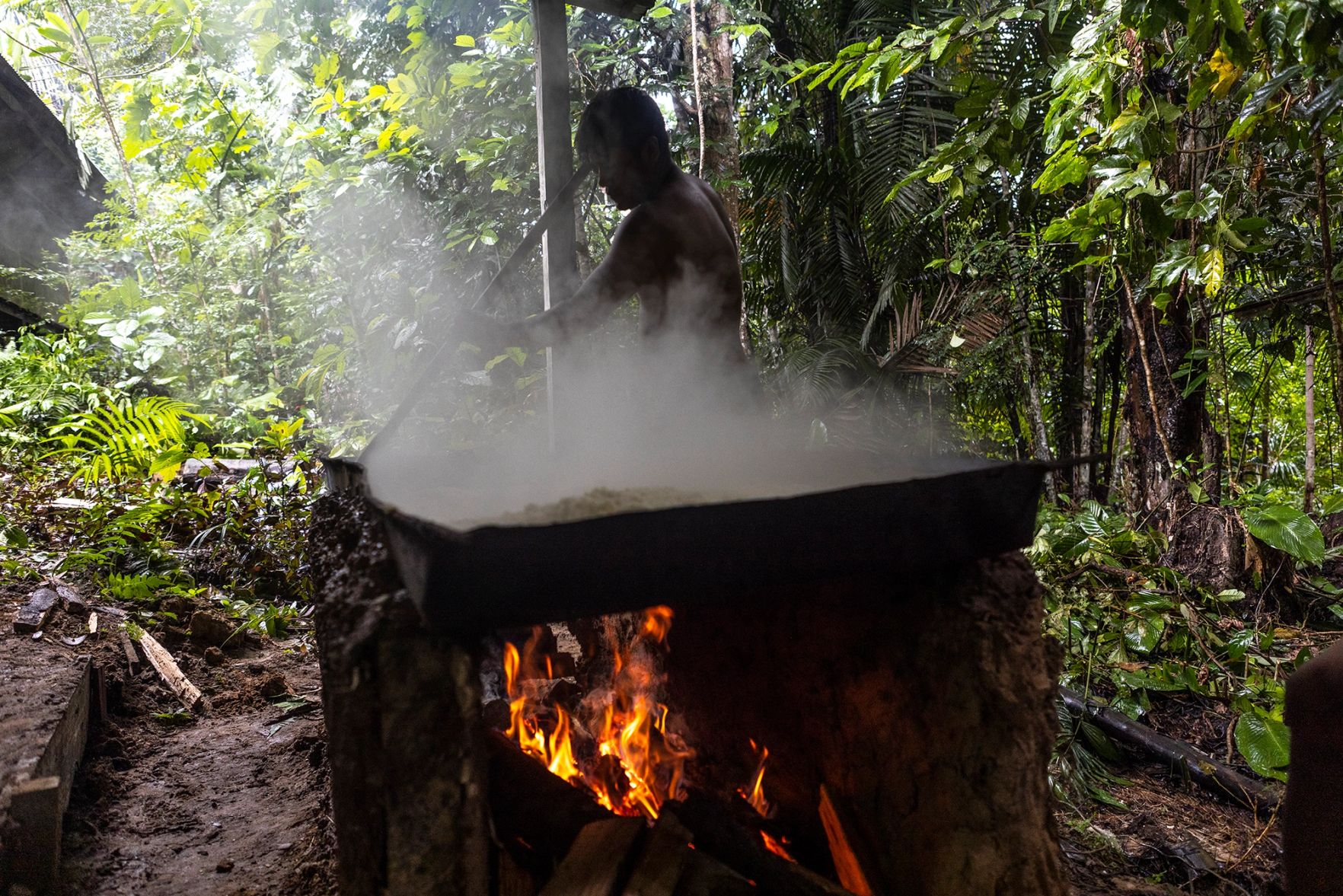
© Photo credit: Macarena Tabja/Chaikuni Institute

